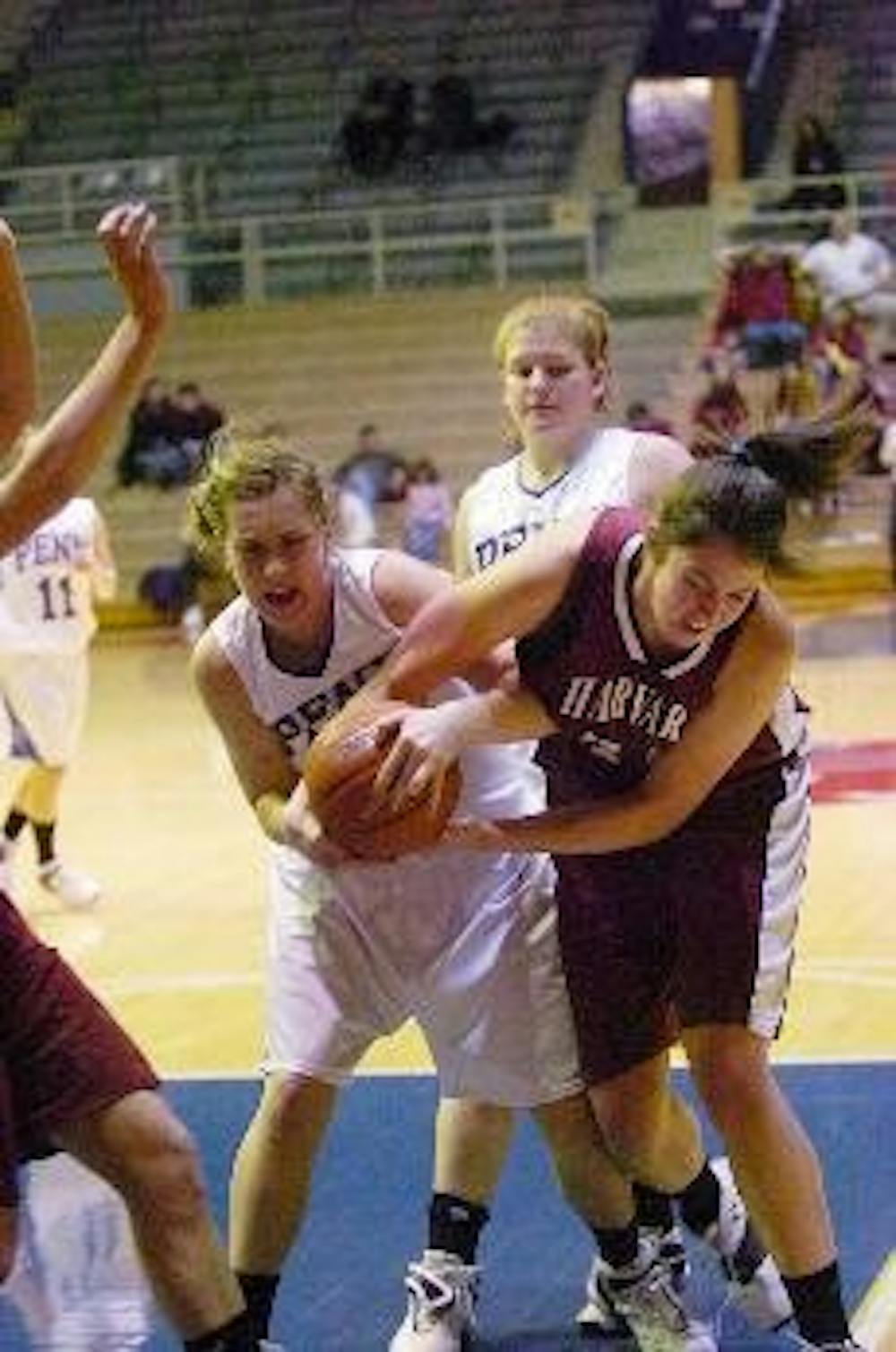
When the women's basketball team was badly blown out by Harvard and Dartmouth two weeks ago, Penn coach Pat Knapp knew that changes would be necessary.
In New England, the Quakers were helpless defending the perimeter, as their opponents shot 55.6 percent overall and an unearthly 16-for-27 (59.3 percent) from behind the arc.
"I might have to think of a way to play these guys better," Knapp conceded at the time. "They shot their lights out."
Things went much better for Knapp's team this time around. Those two Ivy League foes came to the Palestra this weekend, and while the Quakers' offensive production remained static, their defensive efforts changed the story of the games.
The Quakers were one offensive foul away from tying Harvard with 90 seconds left, before ultimately falling by seven. The next night, though, they held on to upset second-place Dartmouth.
The Crimson and Big Green scored just 66 and 53 points, respectively. Both totals were below their season averages and their lowest against the Quakers in Knapp's three-year tenure.
The key, he said, was preventing opposing guards from connecting open looks.
"We finally realized after Harvard and Dartmouth's guards scored over 100 points that we had to play them tighter," Knapp said. "We did a great job chasing both sets of guards all weekend."
The Quakers kept their arms up and in the faces of the opposition. They helped each other well, putting extra pressure on players in shooting position.
And as a result, the Quakers were able to hold their own. The Crimson and Big Green were less than half as effective from three-point land, at just over 27 percent. Prolific shooters Ashley Taylor of Dartmouth and Niki Finelli of Harvard, who were a combined 11-for-14 from long distance during the first series, were just 4-10 this weekend.
A strong late push by Dartmouth could've thrust the Big Green back into the lead. Instead, they missed four of five field goals in the final three minutes.
Both Ivy opponents, meanwhile, had more trouble holding onto the ball, as Harvard had 25 turnovers and Dartmouth 20. Many of them were unforced - the Big Green traveled at least nine times - but the Quakers also had twice as many steals as they did on the road.
Knapp said that there was no fundamental change in strategy.
"We just played harder on defense, I know it's very trite," he said. "We played the ball hard."
And not only did that keep their opponents in check, but the players felt it improved other aspects of their game.
"We played tough defense and worked really hard," senior Lauren Pears said after Friday night's game. "I think that got our offense going."
The Daily Pennsylvanian is an independent, student-run newspaper. Please consider making a donation to support the coverage that shapes the University. Your generosity ensures a future of strong journalism at Penn.
DonatePlease note All comments are eligible for publication in The Daily Pennsylvanian.





